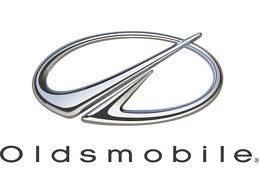Cutlass Ciera V6-231 3.8L (1985)

Engine Control Module: Description and Operation
Acceleration Mode
In the Acceleration Mode, the ECM senses rapid change in throttle position and manifold pressure or air flow and provides a corresponding amount of
added fuel.
Battery Voltage Correction Mode
When battery voltage is low, the ECM compensates to maintain acceptable system performance by increasing injector pulses, idle speed and ignition
dwell time.
Clear Flood Mode (Port and TBI Injection)
A flooded engine is cleared by fully depressing the accelerator pedal, which causes the ECM to pulse the injectors at a air/fuel ratio of 20:1. The ECM
will maintain this air/fuel ratio as long as the throttle is wide open and engine RPM is less than 600. If throttle position becomes less than 80% of wide
open throttle, the ECM returns to ``Starting Mode.''
Deceleration Mode
In the Deceleration Mode, the ECM senses changes in throttle position and manifold pressure of air flow and reduces fuel delivery. When decelerating
very rapidly, the ECM can cut off fuel completely for short periods of time.
Run Mode
The Run Mode consists of two separate operating conditions; open loop and closed loop. The engine operates in open loop when it is first started and
RPM is above 400 RPM. During open loop operation, the ECM disregards the oxygen sensor signal and determines air/fuel mixture primarily from
coolant and MAF sensors on V6-173 (2.8L) (except Fiero), V6-181 (3.0L), V6-231 (3.8L), V8-305 (5.0L) andV8-350 (5.7L) engines. On 4-110 (1.8L),
4-122 (2.0L) Turbo, 4-138 (2.3L) and Fiero V6-173 (2.8L) engines the ECM determines open loop air/fuel mixtures from the coolant and MAP sensors.
On V6-231 (3800) engine, the ECM determines air/fuel mixture primarily from the TPS, coolant and MAF sensors. The engine will continue to operate
in open loop until the following conditions are met:
1.
The oxygen sensor has varying voltage output, indicating it is hot enough to operate properly.
2.
The coolant sensor is above a specified temperature.
3.
A specific amount of time has elapsed since the engine was started. The specified values for conditions mentioned above vary from model to
model, and are stored in the ECM PROM.
When the above conditions are met, the engine goes into closed loop operation. When operating in closed loop, the ECM determines the air/fuel ratio
(injector pulse rate) based on signals from the oxygen sensor. This allows the air/fuel mixture to remain close to the optimum 14.7:1 ratio.
Starting Mode (Port and TBI Injection)
When the ignition is switched On, the ECM energizes the fuel pump for two seconds and pressure is built up in the fuel rail. The ECM then checks the
coolant temperature sensor, the TPS and crank signal and determines the proper air/fuel ratio for starting.
The ECM controls the air/fuel ratio by changing how long the injectors are turned on and off. This is accomplished by ``Pulsing'' the injectors for short
periods of time.
The cold start valve, used on V6-173 and V8-305, 350 engines, is not controlled by the ECM. This valve is used to provide additional fuel during the
starting mode of operation to improve cold start-ups. The cold start circuit is important when engine coolant temperature is very low because the other
eight injectors will not be pulsed ON long enough to provide the needed amount of fuel to start the engine.
